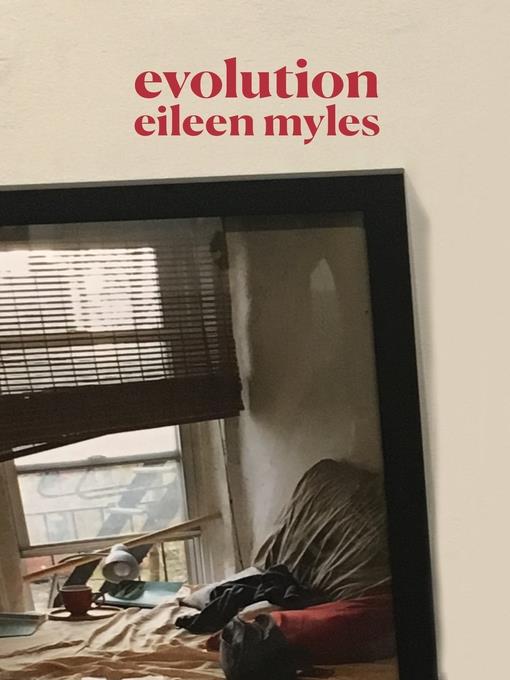
Evolution
New Statesman's best books of the year, 2018
کتاب های مرتبط
- اطلاعات
- نقد و بررسی
- دیدگاه کاربران
نقد و بررسی

August 20, 2018
Myles (Afterglow) returns to familiar themes in her latest collection, ruminating on sex and intimacy, dogs, politics, and New York City. The collection opens with a speech that Myles delivered at a 2017 conference on female spirituality in which the poet recalls protesting the exclusion of LGBTQ marchers from the New York City St. Patrick’s Day Parade: “I never realized how outside I was until I realized they wouldn’t let me in.” From there, Myles moves into verse, with short, highly enjambed lines evoking a flowing stream-of-consciousness. Myles relentlessly questions, analyzes, and even loathes the self, combining fanciful reveries with non sequitur in the New York School style: “I brought/ my chalice/ up right to/ the fountain/ hi Alice/ and I drank.” The poems express a forlorn weariness of contemporary politics, including the collapse of the Occupy movement and the Trump campaign’s “Russian stuff.” Myles effectively brings vague feelings into sharp relief with surprising imagery (“If I get/ this little/ sleep/ I’m butter/ pulling/ the greasy/ details/ over everything”) and lighter moments of mockery reveal the contradictions in human behavior, such as mentioning a compliment received at the gym and simultaneously chiding an ex-lover for retweeting similar praise. Myles has long excelled at capturing outsiderness, and feelings of being lost and misunderstood are plenty evident here. Agent: PJ Mark, Janklow & Nesbit Assoc.

September 1, 2018
"What's the use of being famous," Myles asks at the end of "You," a poem midway through this new collection, which includes a long-form meditation or two on the subject. There's an "acceptance speech" marking the successful end of a decades-long campaign for the U.S. presidency, for instance, and the recounting of a talk Myles gave at the Shaker Museum Feminine Mystique conference in 2017. For a well-known poet nearing 70, fame is a not an unreasonable topic, and it's considered here from many angles. The style here mashes politics writ large (Comey, Trump, the Catholic Church, Palestinian sovereignty, civil/women's/gay rights) and things more intimate (beloved dogs, the last days of Myles's mother), with a restless Myles at the center of everything--incanting in a loud and clear voice: "I think I'm kind of Morissey/ don't you/ though his sweatshirt// wouldn't be so/ cheap/ though he'd/ probably wish/ that it/ was. It's kind of impossible/ to be famous/ and not have /beautiful things./ People always give you their best/..." VERDICT Get in the car and go for a ride with Myles. You'll be entertained--never having to guess what the poet is thinking or where you're being taken.--Iris S. Rosenberg, New York
Copyright 2018 Library Journal, LLC Used with permission.

























دیدگاه کاربران